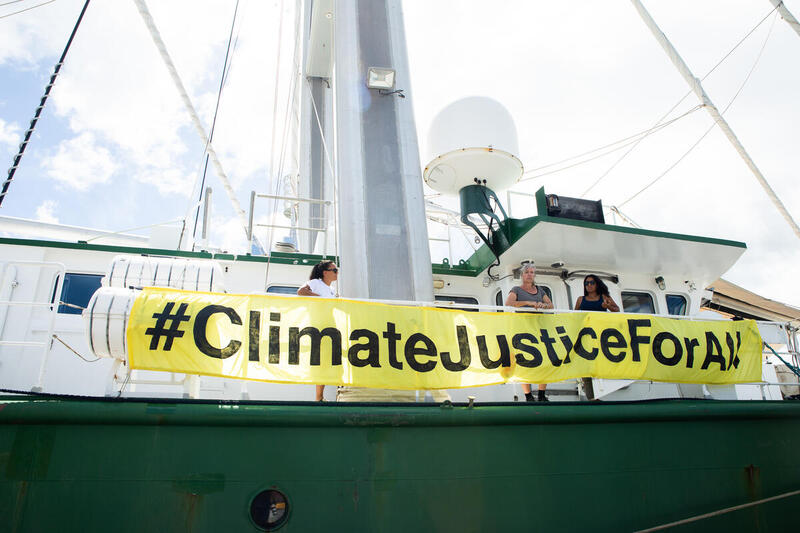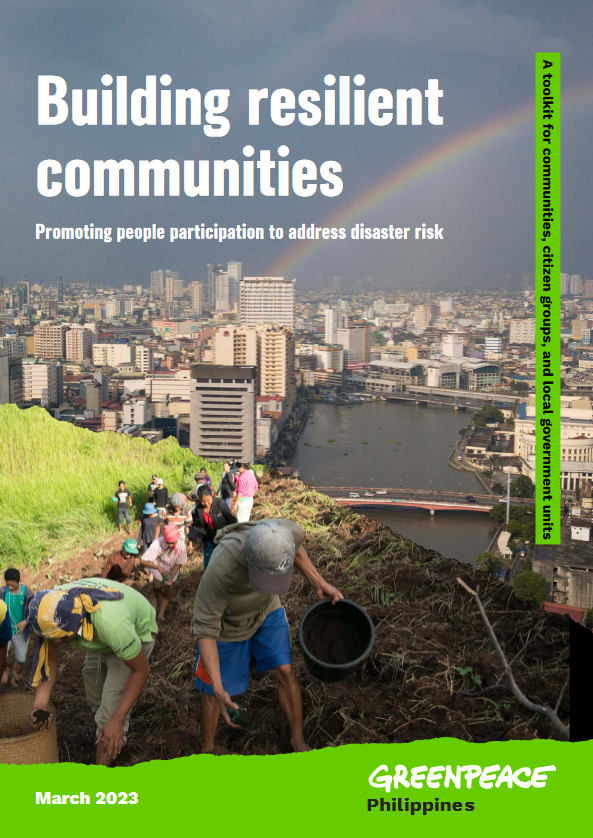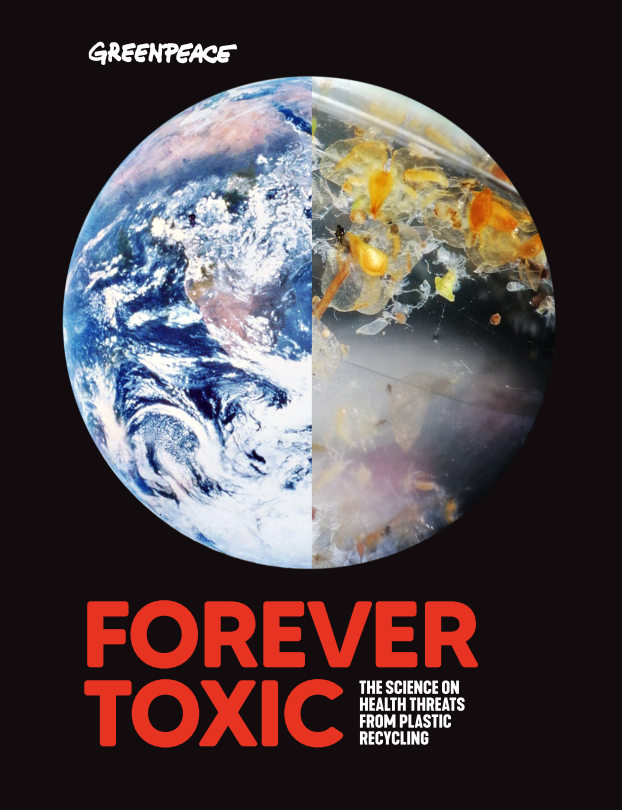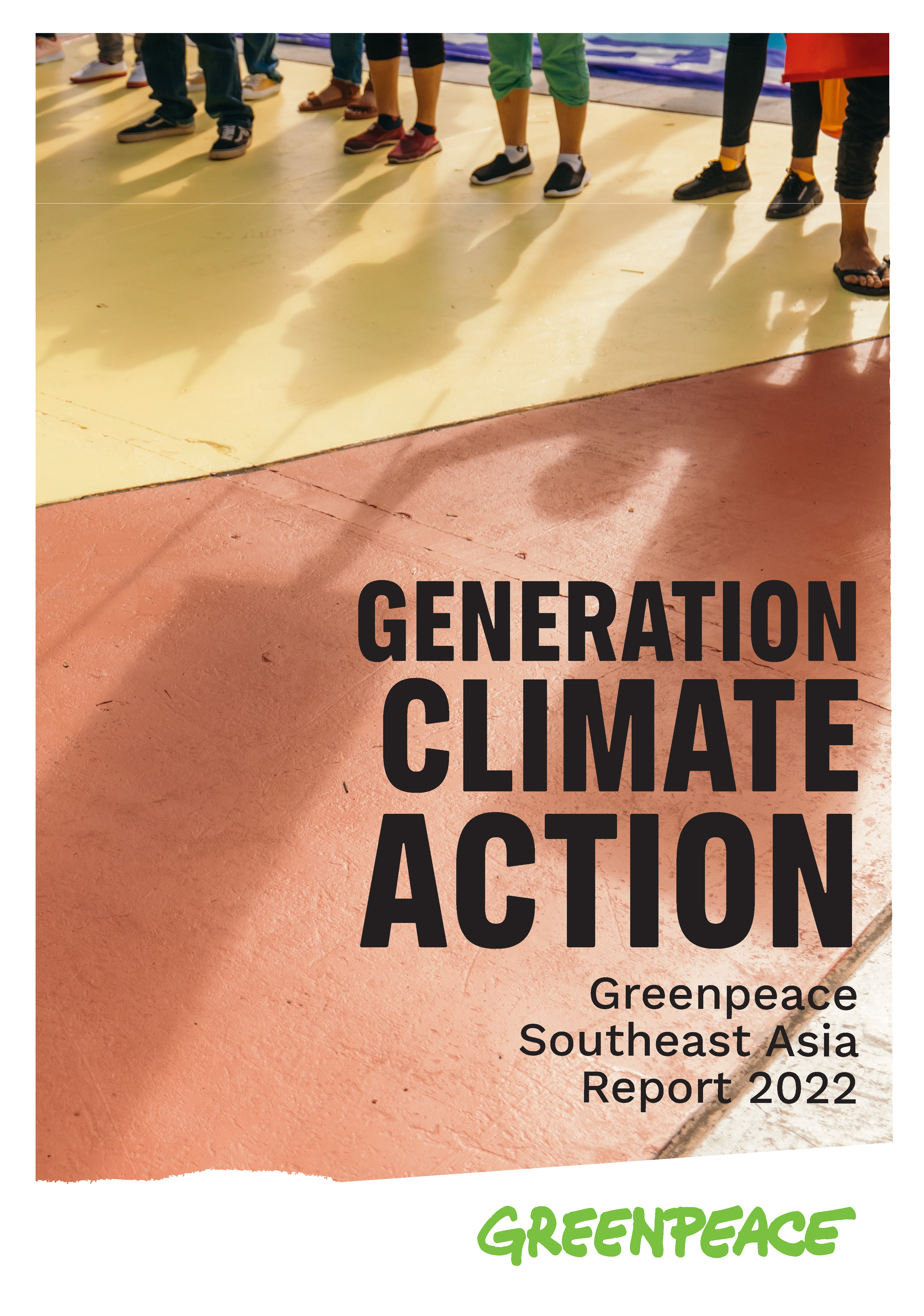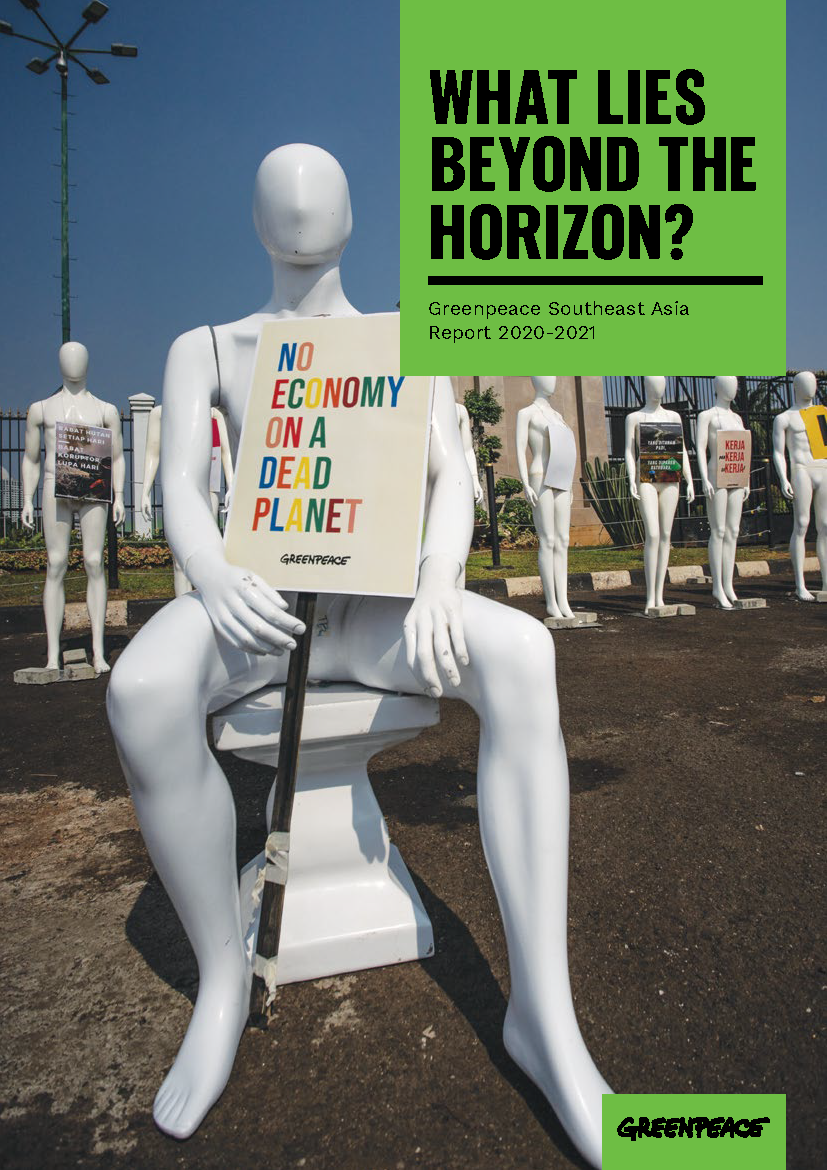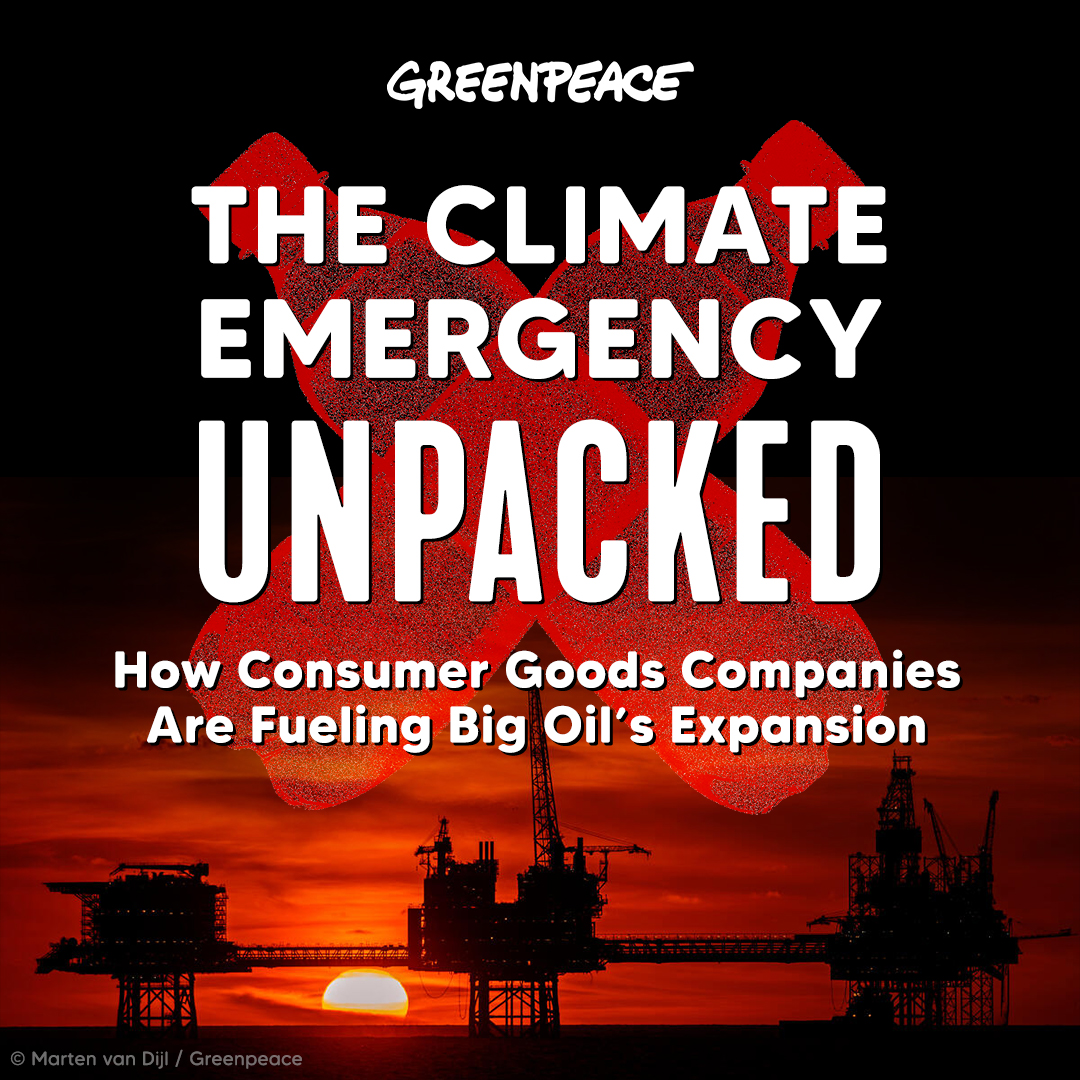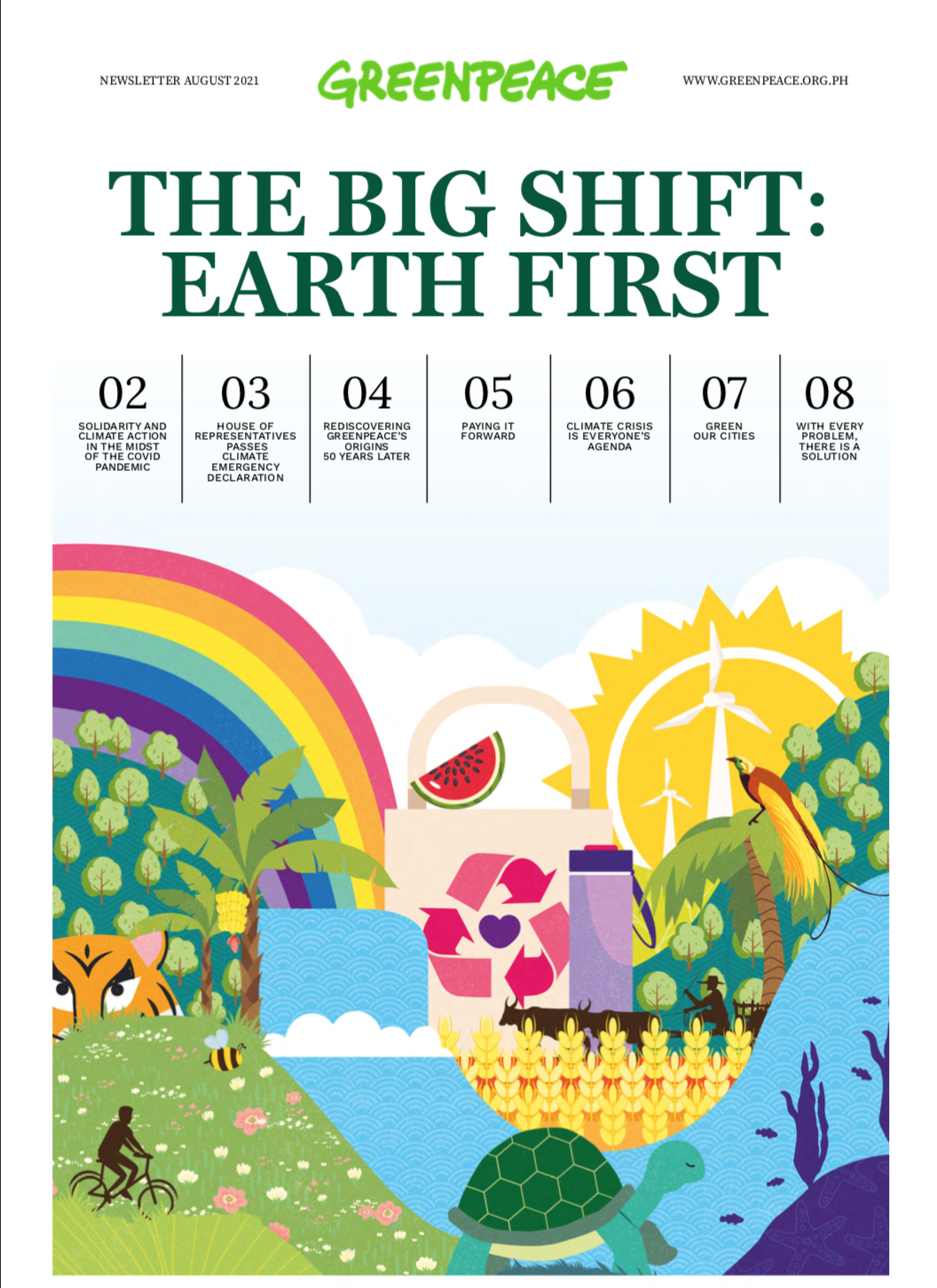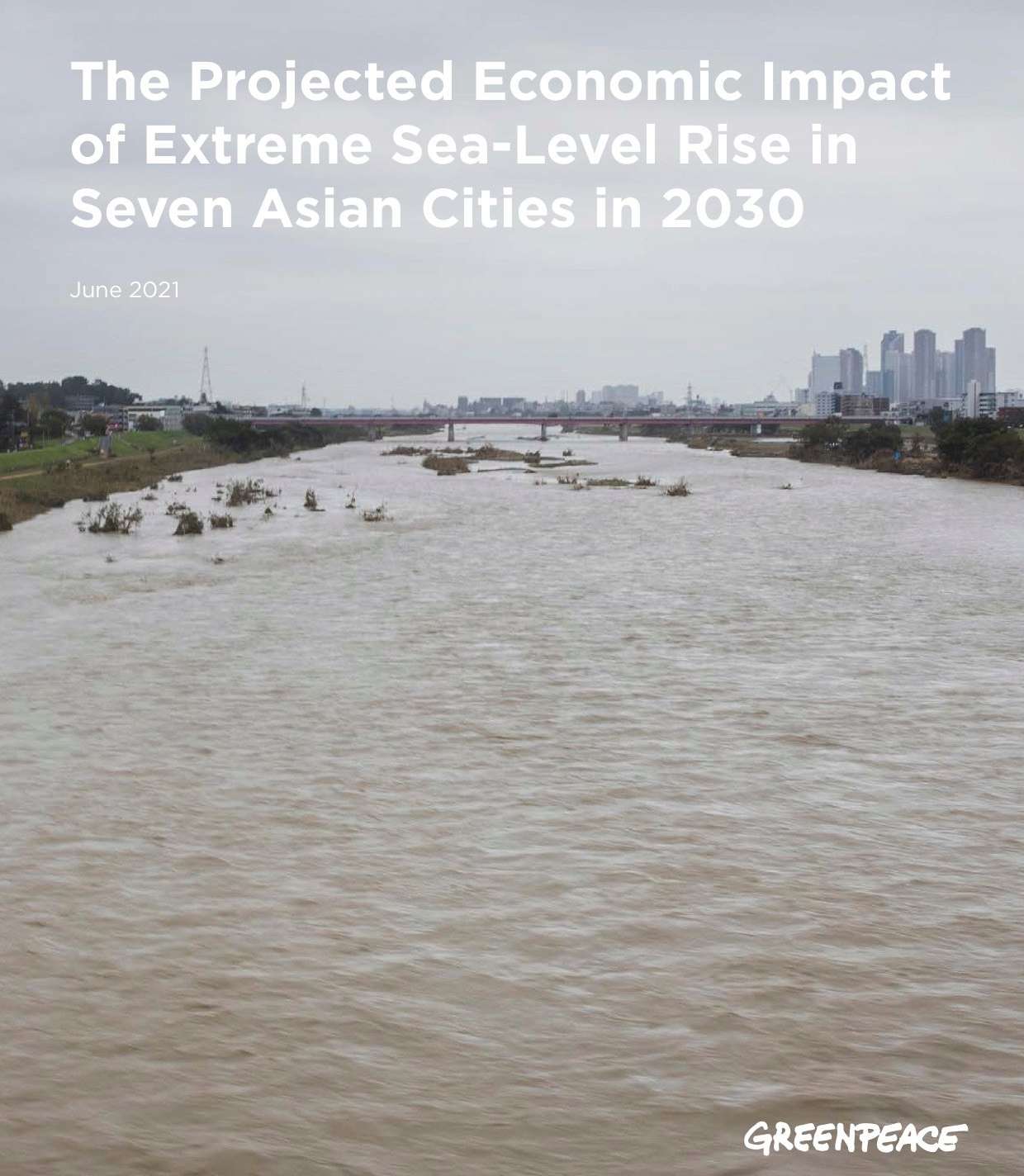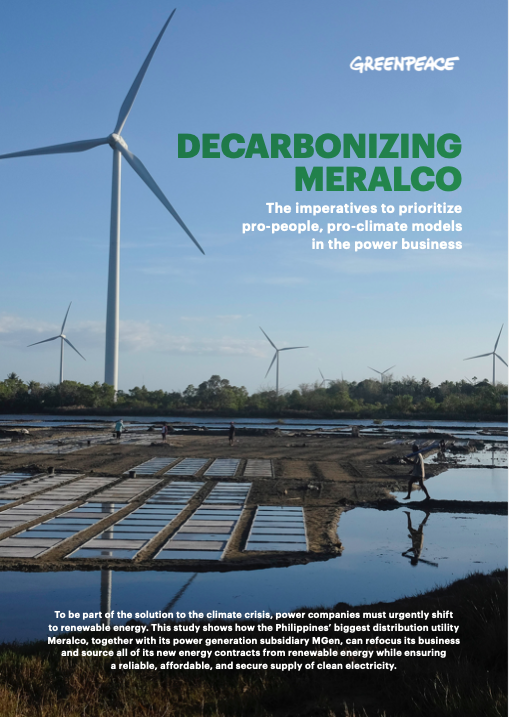All articles
-
2023 Greenpeace Philippines Ship Tour Briefers
The climate crisis is here, and its impacts—loss of lives, homes andlivelihoods—are felt most deeply by the poorest and most vulnerable communitieswho are the least responsible. Fossil fuel companies need…
-
Building resilient communities: Promoting people participation to address disaster risk
The toolkit is a collection of stories from Greenpeace’s partner organizations and local government units (LGUs) that found grassroots initiatives and solutions to some of the challenges in a disaster response.
-
Forever Toxic: The science on health threats from plastic recycling
New Greenpeace report on health threats from plastic recycling
-
DONOR NEWSLETTER 2022
Our work has been varied but towards our common goal. We are at the beginning of the most crucial decade for the climate. We are stepping up the work in 2023 and we look forward to continuing working with you, for people and the planet.
-
Annual Report 2022: Generation Climate Action
This annual report is more than a ledger of deeds; it is a chronicle of Greenpeace Southeast Asia’s unyielding voyage to safeguard the Earth’s most life-rich realms. It celebrates the victories borne of unity and carries the torch of hope for a legacy of sustainability for the generations yet to walk these paths.
-
Annual Report 2020-2021: What Lies Beyond The Horizon
2020 and 2021 will go down in history as the time when humanity was forced to take a really stark look into itself, as our actions and decisions through the last century finally came crashing back
-
The Climate Emergency Unpacked
Greenpeace report on how consumer goods companies are fueling big oil's plastic expansion
-
DONOR NEWSLETTER 2021
Many of us will remember how, at the end of 2020, the Philippines grappled with a Climate Emergency while in the middle of the pandemic. The devastation left in ....
-
The Projected Economic Impact of Extreme Sea-Level Rise in Seven Asian Cities in 2030
Extreme rising sea levels and flooding is a threat to coastal cities. Greenpeace East Asia selected seven cities in Asia that are economic centers and are located on or close…
-
Decarbonizing Meralco
To be part of the solution to the climate crisis, power companies must urgently shift to renewable energy.

